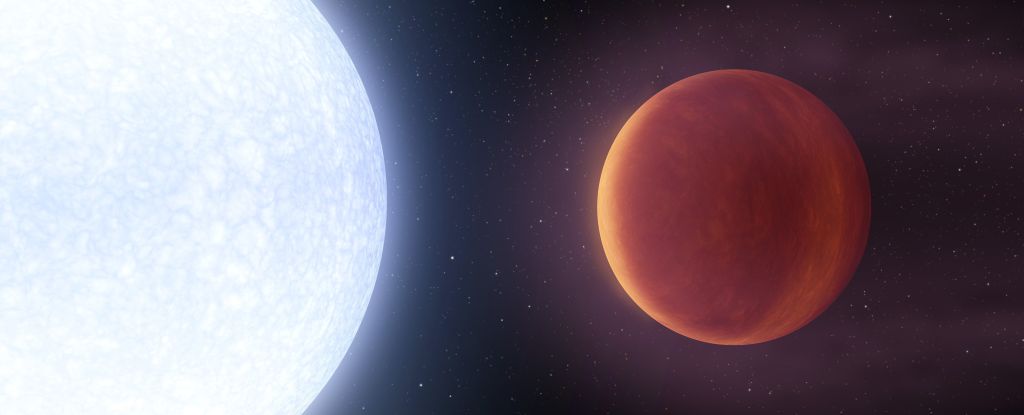Scientists have discovered rare earth metal terbium in the atmosphere of KELT-9b, an exoplanet located approximately 670 light-years away. This is the first time that the extremely rare element has been found on a distant planet. KELT-9b is known as a hot Jupiter, a gas giant that orbits a blue supergiant star on an extremely tight orbit of just 1.48 days. The exoplanet is located in such a way that it passes between us and the star, allowing astronomers to peer into its atmosphere. By analyzing the signature of the dark and light parts of the spectrum of the star’s light when the planet is transiting, scientists can determine which elements are causing the changes in the light.
Unusual Elements Found
Using a new method to obtain more detailed information, scientists have discovered seven elements, including terbium, which has never before been found in any exoplanet’s atmosphere. The team also made new detections of vanadium, barium, strontium, nickel, and other elements, confirming previous detections and suggesting that whatever is going on with KELT-9b is very strange indeed. These detections advance the techniques used for analyzing exoplanet atmospheres, helping scientists to learn how the atmospheres of planets work and to determine the age of exoplanets and how they were formed.
Importance of Heavy Elements
The detection of terbium in an exoplanet atmosphere is not at all expected, and it could tell us something about the history of KELT-9b and its star. Heavy elements like terbium can only be forged in the most violent of circumstances, such as a supernova explosion or a collision between two neutron stars. Since such events occur at the end of a star’s lifetime, the older a star or exoplanet is, the less heavy element material it will have. Conversely, younger stars and exoplanets will have more heavy elements and likely a greater variety. Therefore, learning more about the heavier elements helps scientists to determine the age of the exoplanets and how they were formed. The team’s work also advances the search for Earth 2.0, as studying exoplanets will help scientists to detect biological material in the atmosphere of an alien world.



Leave a Reply